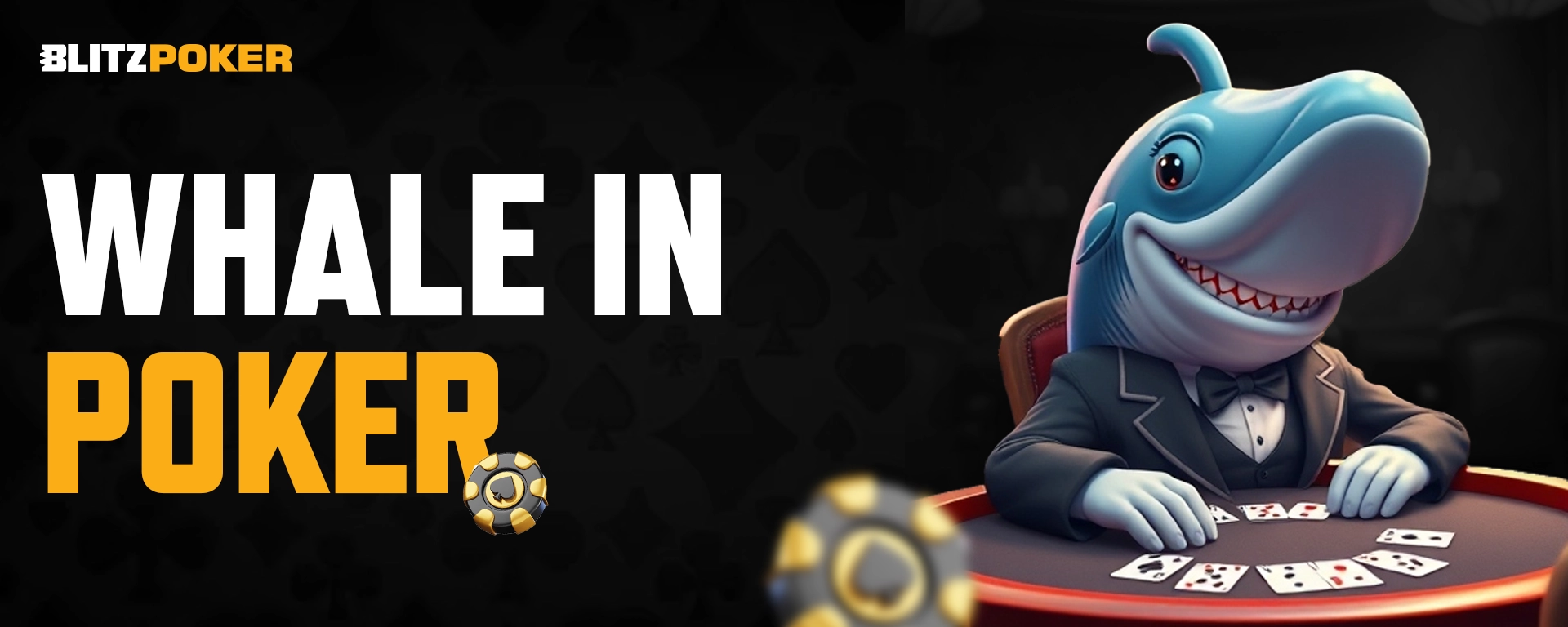Whale in Poker
In the poker world, the term “whales” definitely grabs attention. These players are hard to miss at the tables, showing up with hefty bankrolls and a knack for making big bets that can shake things up. Their presence often changes the entire vibe of a game, turning an ordinary night into something much more exciting. You never really know what they’ll do next, and that unpredictability keeps everyone on their toes. Whales add an extra layer of thrill to the experience, making each hand an opportunity for surprising twists and unexpected turns. Unleash your inner champion with BLITZPOKER, the ultimate high-octane poker platform that redefines great poker experience.
The Meaning Of Whale in Poker
In the poker scene, when someone talks about a “whale,” they’re usually referring to a player who’s got plenty of cash but isn’t quite sure what to do with it at the table. The term originally comes from the finance world, where it described big investors who could influence the market with their moves. But in poker, it’s a bit different. A whale is typically a recreational player with deep pockets but not a strong grasp of the game.
You know the type: they love to play and are willing to shell out big money but often make some pretty questionable decisions. They might be fresh to the game or just lack the strategic skills necessary to compete with the pros. At one time, whales were mostly found at the high-stakes tables, but nowadays, you might hear the term tossed around even for players in low-stakes games who just aren’t playing their cards right.
Whales are kind of seen as the big fish in the pond—but not in a good way. Sure, they’re fun to play against because they often make big bets on bad hands, but seasoned players love to find them at the table. And it’s important to note that calling someone a whale is usually not something you’d say to their face. It’s a bit of a slang term among players, used to describe those who might be a little lost in the game but still bring a lot of action. If you come across a whale at your table, get ready for an entertaining session!
Strategies for Playing Against Whales in Poker
- Play Tight and Aggressive: Since whales tend to play a wide range of hands and can make large bets on weak holdings, it’s best to be selective with your starting hands. Focus on playing strong hands and be aggressive with your bets when you do hit favourable cards. This way, you can extract maximum value when they inevitably call you down with inferior hands.
- Value Bet Often: Whales are known for their willingness to call bets, even with marginal hands. When you have a strong hand, pump up the value bets. Make sure you’re betting enough to entice them to call, but not so much that it scares them off. Think about how much they might be willing to call and adjust your bet sizing accordingly.
- Control the Pot Size: While you want to build the pot when you have a strong hand, it’s important to control the pot size when you’re holding a marginal hand. Whales might overcommit to the pot with weaker hands, so be mindful and try not to get invested in large pots without strong holdings.
- Be Patient: Whales can make big mistakes, but it might take a while for them to do so. Stay patient and wait for those moments when the odds are in your favour. Resist the urge to get into confrontations with them unless you have the goods.
- Observe Their Tendencies: Pay attention to how the whale plays. Do they bluff often? What hands do they show down? By understanding their playing style, you can make more informed decisions. For instance, if they frequently Chase draws, you might want to be more cautious if you have a good hand on a potential straight or flush board.
- Don’t Get Tilted: Whales often have wild playing styles that can be frustrating or confusing to deal with. Keep your cool, stick to your strategy, and don’t let their antics throw you off your game.
- Know When to Walk Away: While playing against whales can be lucrative, there might be times when they hit a lucky streak or their unpredictable nature starts to grate on your nerves. If the dynamic at the table isn’t working in your favour, don’t hesitate to cash out and move on.
